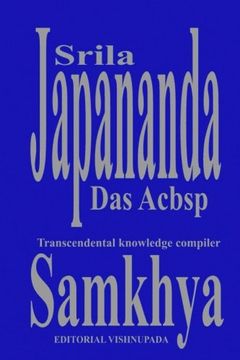Reseña del libro "Samkhya: The Samkhya Sutras of Kapiladev (en Inglés)"
Samkhya or Sankhya is one of the six astika schools of Hindu philosophy. It is most related to the Yoga school of Hinduism, and it was influential on other schools of Indian philosophy. Samkhya is an enumerationist philosophy whose epistemology accepts three of six pramanas (proofs) as the only reliable means of gaining knowledge. These include pratyaksa (perception), anumana (inference) and sabda (aptavacana, word/testimony of reliable sources). Sometimes described as one of the rationalist schools of Indian philosophy, this ancient school's reliance on reason was exclusive but strong. Samkhya is strongly dualist. Samkhya philosophy regards the universe as consisting of two realities, purusa (consciousness) and prakrti (matter). Jiva (a living being) is that state in which purusa is bonded to prakrti in some form. This fusion, state the Samkhya scholars, led to the emergence of buddhi ("intellect") and ahankara (ego consciousness). The universe is described by this school as one created by purusa-prakrti entities infused with various permutations and combinations of variously enumerated elements, senses, feelings, activity and mind. During the state of imbalance, one of more constituents overwhelm the others, creating a form of bondage, particularly of the mind. The end of this imbalance, bondage is called liberation, or kaivalya, by the Samkhya school. The existence of God or supreme being is not directly asserted, nor considered relevant by the Samkhya philosophers. Samkhya denies the final cause of Ishvara (God). While the Samkhya school considers the Vedas as a reliable source of knowledge, it is an atheistic philosophy according to Paul Deussen and other scholars. A key difference between Samkhya and Yoga schools, state scholars, is that Yoga school accepts a "personal, yet essentially inactive, deity" or "personal god".

